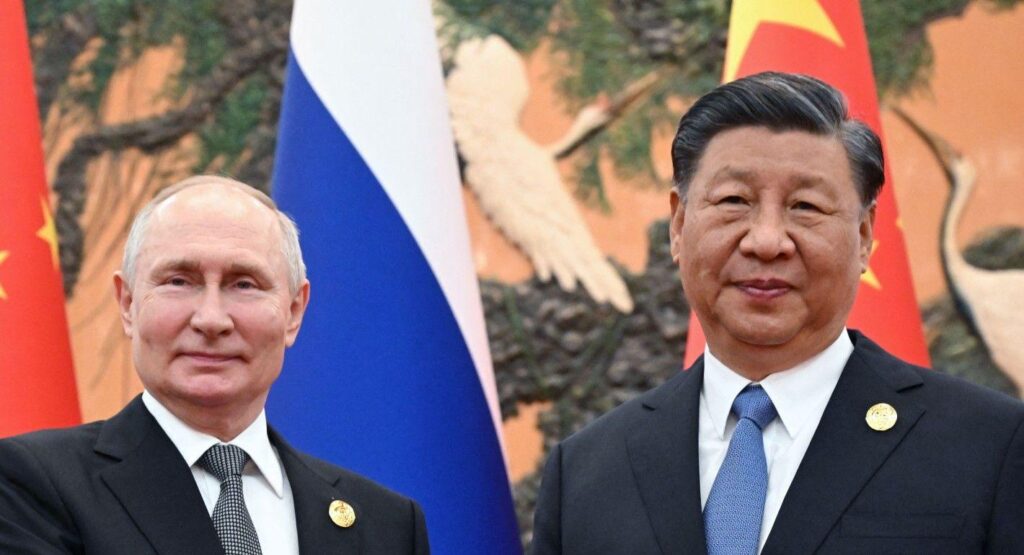In a world marked by uncertainty and geopolitical tensions,the nuclear arsenals of Russia and China are projected to reach alarming levels by the year 2035. As both nations continue to expand their nuclear capabilities, the prospect of a potential arms race looms large on the horizon. In the face of this looming threat, the global community must remain vigilant and proactive in it’s efforts to promote peace and deter the use of these devastating weapons.
Rising Proliferation: Implications of Russia and China’s Growing nuclear Arsenal
In a shocking revelation, recent reports indicate that both russia and China are on track to have a combined total of 11,000 nuclear warheads by the year 2035. This unprecedented increase in their nuclear arsenal has far-reaching implications for global security and stability.
The rising proliferation of nuclear weapons in these two superpowers poses a notable threat to international efforts to prevent nuclear proliferation. The sheer magnitude of their combined arsenal raises concerns about a potential arms race and the risks of accidental or intentional use of these weapons. It underscores the urgent need for renewed diplomatic efforts to address the growing nuclear capabilities of Russia and China and to promote arms control and disarmament agreements.
Strategic Deterrence: Analyzing the Role of Nuclear Warheads in Geopolitical stability
Russia and china are projected to possess a combined total of 11,000 nuclear warheads by the year 2035, according to recent geopolitical analyses. This significant increase in their nuclear capabilities has raised concerns among global leaders about the potential implications for geopolitical stability and the balance of power on the world stage.
With both countries heavily investing in their nuclear arsenals, the strategic deterrence landscape is likely to shift in the coming years. The sheer number of warheads possessed by Russia and china could have far-reaching effects on international relations and alliances, challenging the existing framework of nuclear deterrence. As these two nations continue to expand their nuclear capabilities, the need for diplomatic efforts and arms control agreements to promote stability and prevent potential conflicts becomes increasingly critical.
International Cooperation: Urgent Need for Arms Control Agreements to Mitigate Risks of Nuclear Conflict
The alarming projection of Russia and China having a combined total of 11,000 nuclear warheads by 2035 underscores the urgent need for international cooperation in implementing arms control agreements. Without such agreements, the risks of nuclear conflict escalating to catastrophic levels will only continue to increase.
It is indeed imperative that nations come together to prioritize arms control measures aimed at reducing the proliferation of nuclear weapons.By establishing clear and enforceable agreements, the international community can work towards mitigating the threats posed by the growing stockpiles of nuclear warheads. This collaborative effort is crucial in ensuring global peace and security for future generations.
Nuclear Disarmament: Exploring Diplomatic Pathways to Reduce Global Stockpiles of Weapons of Mass Destruction
Russia and China are projected to have a combined total of 11,000 nuclear warheads by the year 2035. This staggering number underscores the urgent need for diplomatic efforts to reduce global stockpiles of weapons of mass destruction. With both countries heavily investing in their nuclear arsenals, the world faces a growing threat of nuclear proliferation.
As two of the world’s major nuclear powers, Russia and China play a crucial role in shaping the future of nuclear disarmament. Diplomatic pathways must be explored to engage these countries in meaningful discussions aimed at reducing nuclear tensions and promoting international security. By fostering dialog and cooperation, we can work towards a safer and more peaceful world for future generations.
In retrospect
the prospect of Russia and China possessing a combined total of 11,000 nuclear warheads by 2035 certainly raises concerns about the future of global security. as these two major powers continue to modernize and expand their nuclear arsenals, it is essential for the international community to prioritize diplomacy and arms control to prevent the catastrophic consequences of nuclear war. Only through cooperation and dialogue can we strive towards a peaceful and secure world for future generations.
